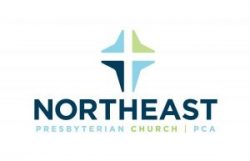Worship is a way of life that takes place not just at 11:00 on Sunday morning, but every other hour of the week (John 4:20-24). Through this “Call to Worship,” we want to share some thoughts about worship, scripture verses, hymns, and songs to teach and encourage you as you seek His face daily and then hopefully together with us on Sunday!
This Week at Traditional Worship (10:00)
Maria Currey, Assistant Director of Music – Traditional
What is a Doxology, and is it found in the Bible?
The word “doxology” literally means a study of praise. Dictionaries usually define the term as expressions of praise to God, often associated with a hymn sung during Christian worship.
Throughout history, certain songs have been specifically labeled as doxologies by the church. The Gloria Patri is known as the “Great Doxology,” and there is also a “Lesser Doxology” whose lyrics include, “Glory be to the Father, and to the Son, and to the Holy Ghost. As it was in the beginning, is now and ever shall be, world without end. Amen.”
The traditional doxology used in Protestant churches was written in 1674 in England:
Praise God, from Whom all blessings flow
Praise Him, all creatures here below
Praise Him above, ye Heavenly Host
Praise Father, Son, and Holy Ghost. Amen.
Certain passages in Scripture are often considered short hymns or doxologies. For example, Ephesians 1:3 says, “Blessed be the God and Father of our Lord Jesus Christ, who has blessed us in Christ with every spiritual blessing in the heavenly places.” Romans 11:36 says, “For from him and through him and to him are all things. To him be glory forever. Amen.” Ephesians 5:14 says, “Awake, O sleeper, and arise from the dead, and Christ will shine on you.”
First Timothy 3:16 is another well-known doxology that praises Jesus Christ:
He was manifested in the flesh, vindicated by the Spirit, seen by angels, proclaimed among the nations, believed on in the world, taken up in glory.
The Psalms contain several passages that the church has transformed into doxologies. Jesus and His followers likely sang one of the Psalms as a hymn on the night of the Last Supper (Matthew 26:30; Mark 14:26).
In 1 Corinthians 14:26 we are told that the church regularly shared hymns as part of their worship gatherings. Ephesians 5:19-20 also says we should be “addressing one another in psalms and hymns and spiritual songs, singing and making melody to the Lord with [our] heart, giving thanks always and for everything to God the Father in the name of our Lord Jesus Christ.” Doxology has been an important part of the church since its beginning, a practice continued throughout history, and of valuable importance today.
This Sunday, the Doxology will be threaded into our worship from several vantage points. Sing and make melodies to our Lord together – a humble privilege – for His honor and renown!
This Week at Contemporary Worship (11:15)
Kerri Roberts, Assistant Director of Music – Contemporary
In Christ Alone is perhaps the most enduring hymn of our generation, written by Stuart Townend and Keith Getty. We love to sing it because it so powerfully recounts God’s redemption plan for us carried out through Jesus Christ. It is the very basis of what we believe and why we worship! Here is a bit of the story behind the song, from Stuart Townend.
“As soon as I heard the first song – which was just [Keith] on the piano, playing the melody in the right hand – I thought there was something about it, something quite profound. It was a classic melody, with that eternal, enduring aspect. I was getting to like it more and more and wondering what the song could be about. I phoned Keith and subsequently thought ‘this is a song about Jesus’ life, death and resurrection and what that means for us.’
When I started to write the lyrics it got more and more exciting, and I got more and more emotional. I began to try and put into words what it means for Christ to have gone through what he went through, what that means for me and how that completely changes my life.
The song started slowly in terms of my writing. Sometimes you’re just trying to find your way with the first verse, trying to find the key theme. The second verse was about his life and going to the cross, but I think that by the third verse I was thinking about the moment of resurrection. The melody was so powerful, so suggestive of that, and it was at that point I began to be really caught up in the song. It kind of meant that the fourth verse just spilled out, with me saying ‘wow, this is what the cross and resurrection means: to change is everything.’
That’s the power of the song – it points to what Christ went though. We get to stand before him not because of our great faith or because doing well as a Christian, but purely and simply because of what he has done. That’s why the song is helpful. That’s why it means something.”
No guilt in life, no fear in death, this is the power of Christ in me.
From life’s first cry to final breath, Jesus commands my destiny.
No power of hell, no scheme of man could ever pluck me from his hand.
‘Til He returns or calls me home, here in the power of Christ I’ll stand.
